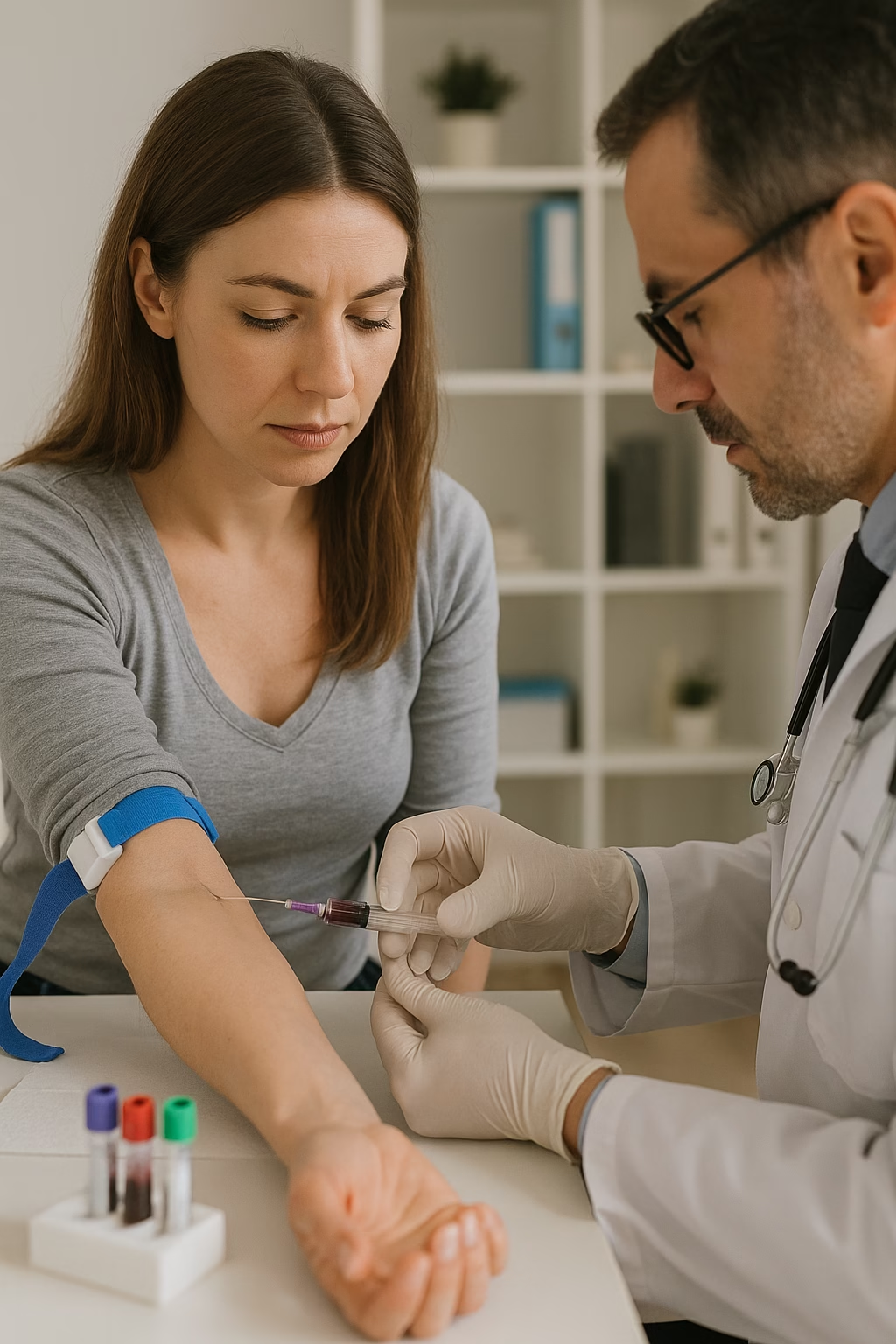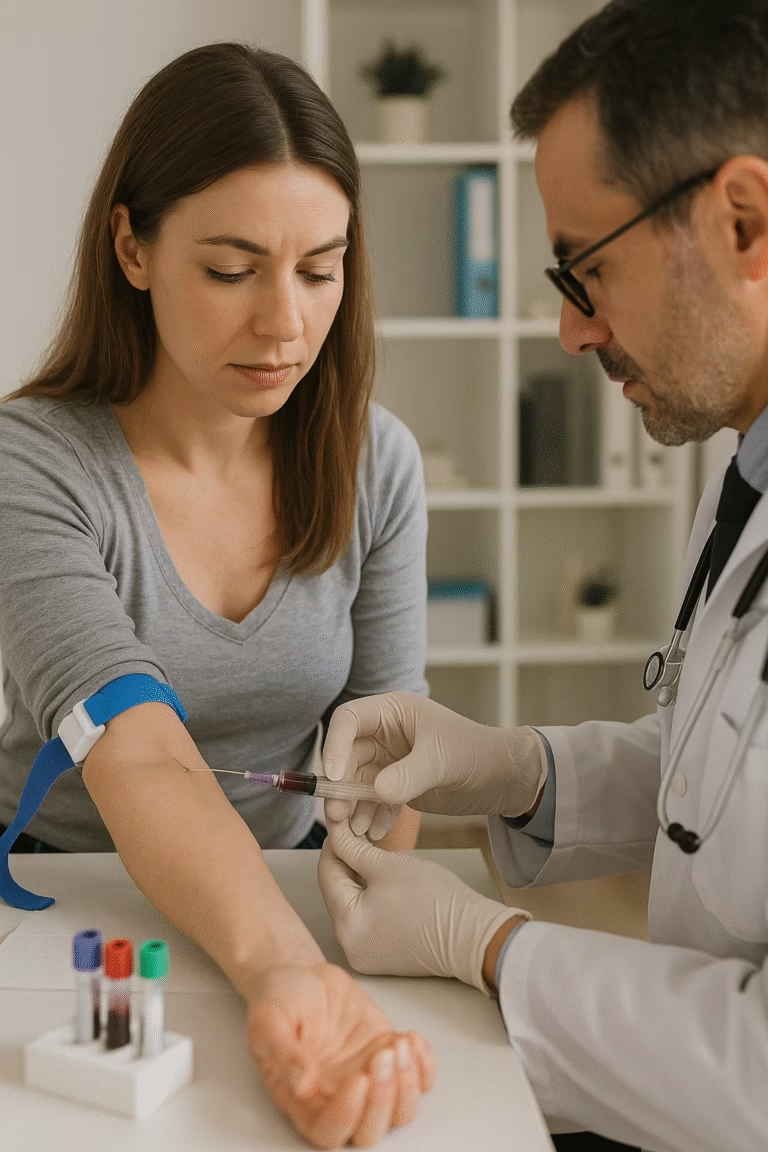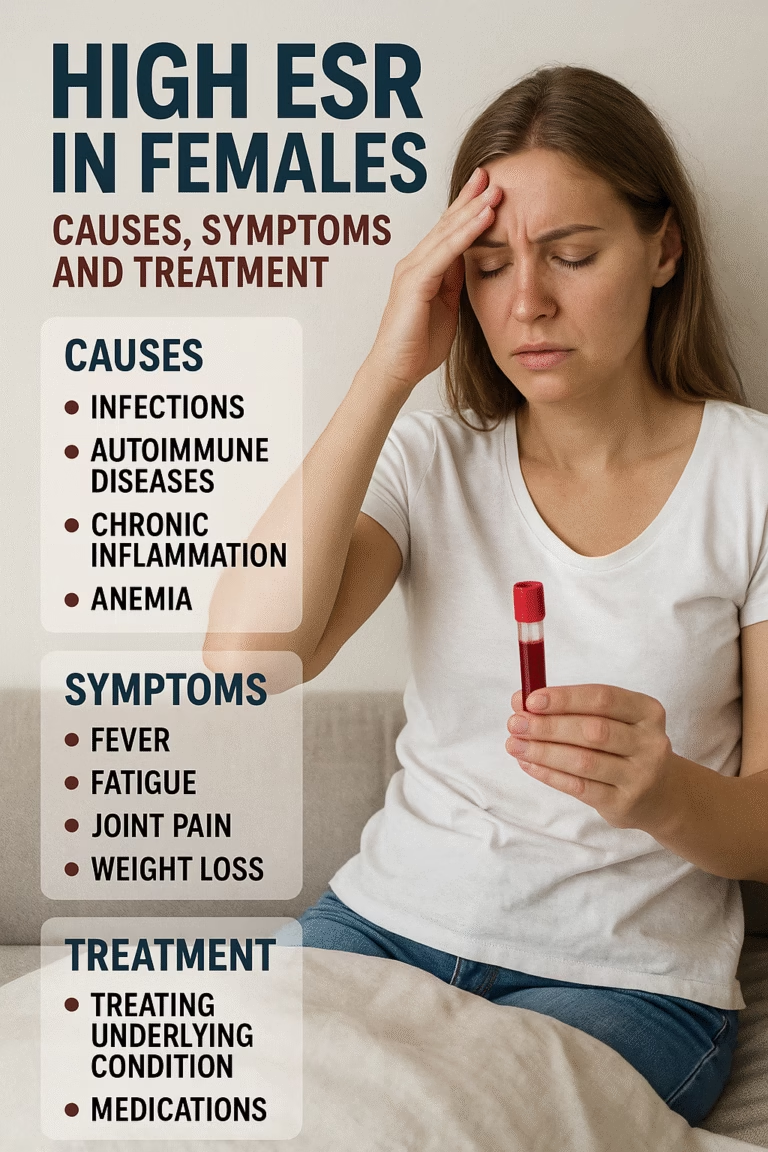
Did you know that Indians have one of the highest rates of lifestyle diseases in the world? Crossing 30 does not just bring in more responsibilities; it also brings changes to your body in ways that you might not notice immediately. And many people assume that checkups are only needed when something goes wrong, but lifestyle diseases like thyroid, hypertension, and diabetes are more prevalent among Indians than ever before. Early detection of these diseases through simple tests can lower the risk of severe complications. That is why taking these health tests after 30 can make a significant difference in the prevalence of modern-day health problems and help maintain our long-term well-being.
Here’s a list of important checkups to help you stay healthy and proactive after 30:
1. Blood pressure checkup
It is a quick and painless test used to check high blood pressure(HBP) and low blood pressure(LBP) using a sphygmomanometer. The procedure is done by wrapping a cuff around the arm while the person is in a resting seated position with their arm supported at heart level.
Signs you might need this test:
- Blurred vision or vision problem
- Feeling tired without a reason
- Frequent headaches
- Chest pain or a heavy feeling in the chest
2. Heart health checkup
It is a routine screening used to check the functioning of the heart. The test is usually done through a blood pressure test, a blood test, and an electrocardiogram (ECG), which can detect risks like high cholesterol, high blood pressure, or irregular heartbeat early. They can also be used to prevent major complications like a heart attack or stroke.
Signs you might need this test:
- Frequent chest pain or tightness
- Swelling in the ankles, feet, or legs
- Family history of heart disease
- Shortness of breath during simple activities
- Irregular heartbeat
3. Blood sugar test
A blood sugar test is used to measure the amount of glucose in the blood, and it is one of the most important tests for the detection of diabetes, prediabetes, or hypoglycemia. Uncontrolled blood sugar can cause damage to our kidneys, heart, eyes, and lungs; hence, early detection is necessary.
Signs you might need this test:
- Feeling thirsty all the time
- Feeling hungry even after eating
- Frequent urination
- Blurred vision
- Slow-healing wounds
- Family history of diabetes
4. Lipid Profile (Cholesterol Test)
It is a blood test used to measure the level of different types of fats(lipids) in our body. The test helps in the early detection of high cholesterol and the risk of diseases like heart disease, stroke, and clogged arteries.
Signs you might need this test:
- Being overweight
- Family history of high cholesterol
- Chest pain
- Persistent fatigue
- Shortness of breath
- Fatty deposits on the skin
5. Liver function test
It is a blood test used to measure the enzymes, proteins, and other substances that are produced and processed in the liver. This test can detect diseases and liver damage early by checking the liver function. Early detection allows for timely treatment and prevents complications like liver cirrhosis.
Signs you might need this test:
- Yellowing of skin and eyes
- Swelling in the abdomen and legs
- Nausea
- Loss of appetite
- Family history of liver disease
6. Kidney function test
It is a group of blood and urine tests that check kidney function. Since the kidney is a vital organ in our body, any damage to the kidney can affect the overall well-being of our body. Most times, kidney diseases develop silently, only showing symptoms during the last stage; hence, early detection of these diseases will prevent complications like kidney failure and chronic kidney disease.
Signs you might need this test:
- High blood pressure
- Blood in urine
- Foamy urine
- Swelling in ankles, feet, or hands
- Frequent or reduced urination
7. Complete blood count and vitamin levels
Complete blood count (CBC) is a test that measures various components of blood, including red blood cells (RBC), white blood cells (WBC), platelets, hemoglobin, etc. The test helps detect conditions such as anemia and infections. Vitamin deficiency is common after the age of 30; hence, checking vitamin levels along with CBC can reduce problems like weak immunity, fatigue, and bone problems.
Signs you might need this test:
- Pale skin
- Frequent dizziness
- Bone or muscle pain
- Hair fall
- Frequent infections
- Persistent tiredness
8. Thyroid function test
It is a blood test that checks the level of thyroid hormones and thyroid-stimulating hormones in our body, and these hormones are responsible for metabolism and other functions in the body. Thyroid disease is very common in India, especially in women, and if left untreated, it can even lead to fertility issues, fatigue, and mood swings.
Signs you might need this test:
- Excessive hair fall
- Irregular periods
- Swelling in the neck
- Depression, anxiety, and mood swings
- Low energy
- Fatigue
9. Cancer screenings
They are preventive tests usually done even before the appearance of symptoms, and it is designed to detect cancer at early stages. The type of screening done can vary according to age, gender, family history, and lifestyle. The common cancer screening after 30 includes the Pap smear test, mammogram, and colonoscopy tests.
Signs you might need this test:
- Unexplained weight loss
- Lumps or swelling
- Unusual bleeding or discharge
- Changes in moles or skin patches
- Persistent cough
10. Eye and dental checkups
Regular eye and dental screenings are equally important as other health checkups, but they are often overlooked. A dental exam checks for cavities, gum disease, and oral infections. Whereas an eye exam helps to detect conditions like vision problems, cataracts, glaucoma, etc. Healthy eyes and teeth contribute to the quality of life and overall well-being.
Signs you might need this test:
- Eye strain
- Blurred vision
- Frequent headaches
- Tooth pain or sensitivity
- Bleeding gums
Conclusion
Good health doesn’t just happen; it is built through awareness, prevention, and constant care. Turning 30 can be your perfect time to start healthcare. Early detection of disease through these 10 checkups can protect you from serious health issues in the future. Remember, regular health checkups are not a sign of weakness; they are an investment in your health.
Frequently asked questions
How often should I get health checkups done?
Most routine tests like blood sugar, blood pressure, etc, are done once a year. But checkups like cancer screenings depend on the person’s age, gender, family history, and lifestyle.
Can I do these tests at home?
Some tests, like blood pressure, blood sugar, and some cholesterol tests, can be done at home. But it is always advisable to do these tests at hospitals or health centres for accurate results.
When is the right time to go for a full-body checkup?
Doctors usually recommend doing a full body checkup annually from the age of 30. This is mainly because of lifestyle diseases like diabetes, high cholesterol, and thyroid disorders, which start silently in the 30s.
Do I need to fast before doing these tests?
Yes, for some tests, like blood sugar, lipid profile, and certain vitamin tests, may require 8-12 hours of fasting. Your doctor or lab will give the specific instructions for each test.
Do men and women need separate tests?
Yes, while most tests are common for both, women may additionally require tests like a pap smear, a mammogram, and bone health checks, while men may require prostate-specific antigen tests later in life.
About The Author
Discover more from The Vigyan Chronicles
Subscribe to get the latest posts sent to your email.




